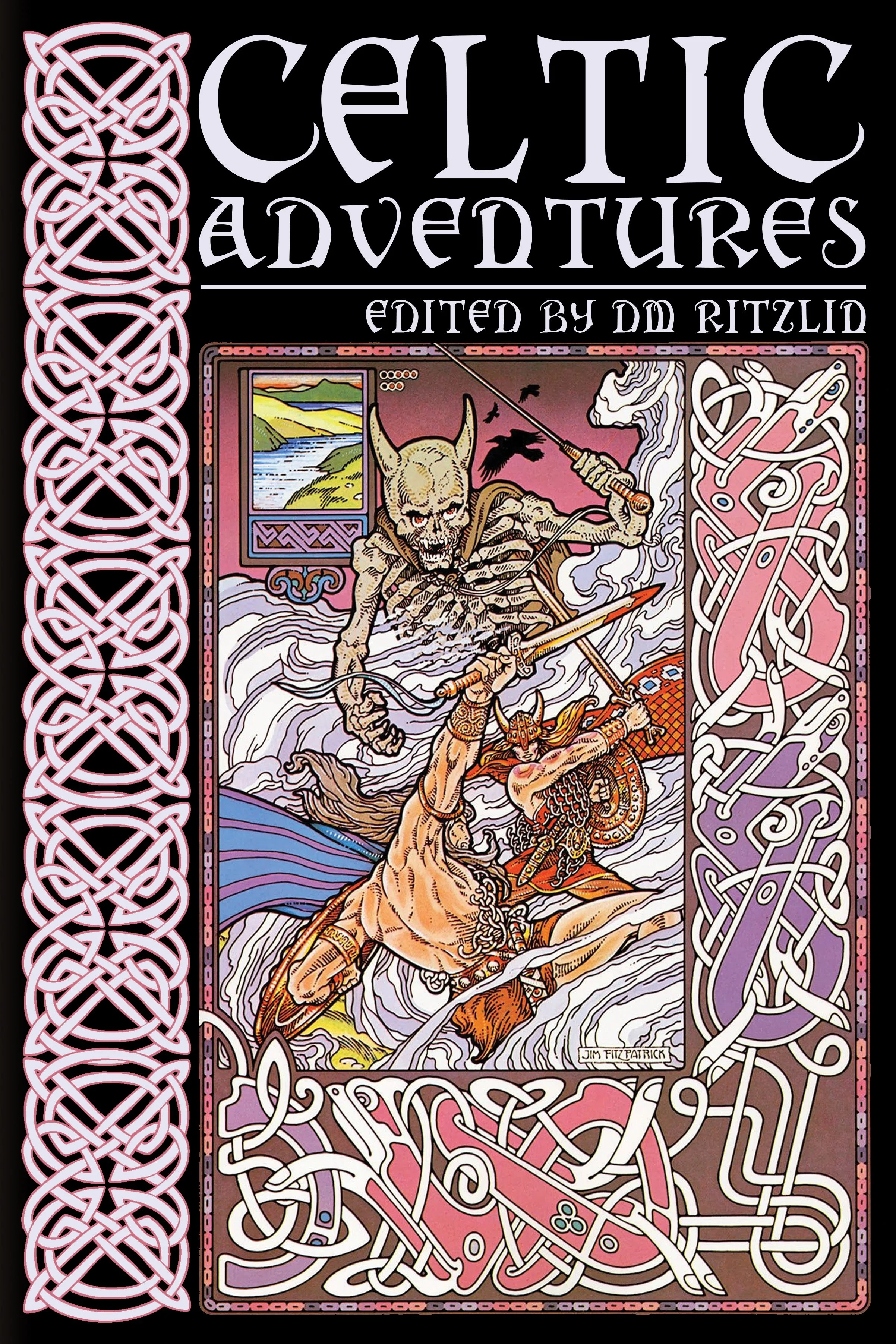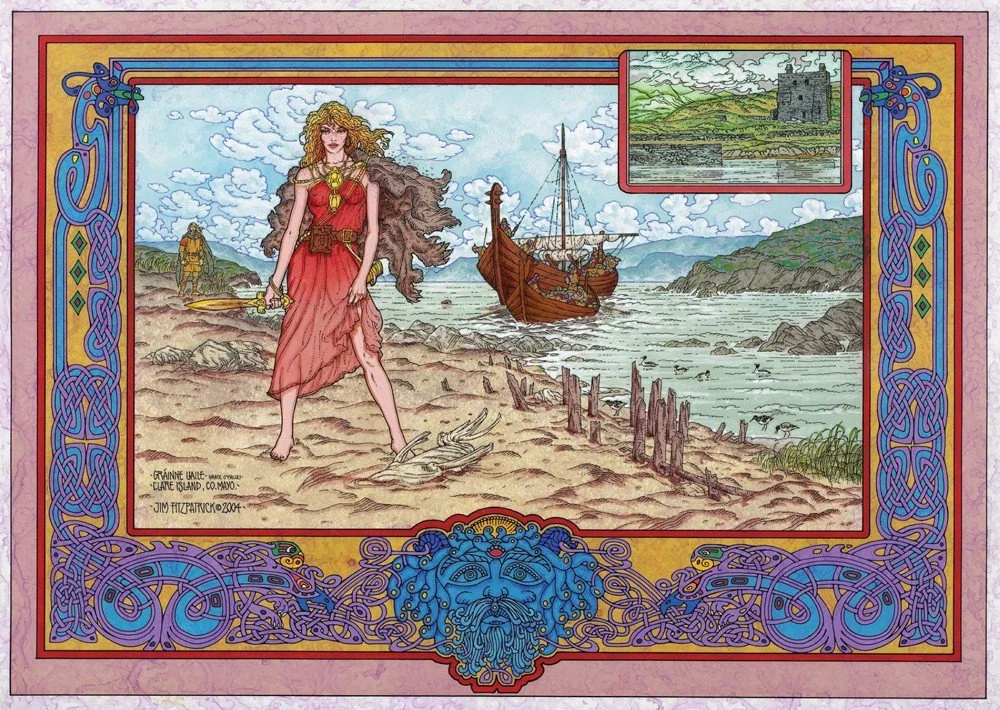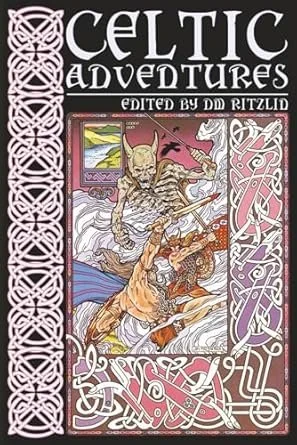James Reasoner Reviews DMR Books' Celtic Adventures
James Reasoner. Hundreds of novels. Millions of words. Living the pulp ethic.
James Reasoner is a serious guy. Not in the sense of ‘humorless’, but somebody who takes his life and things he likes seriously. Somebody who is legit. He’s been a published author for over fifty years. Born in Fort Worth, he grew up loving pulp authors like Robert E. Howard and Edgar Rice Burroughs.
Since the 1970s, Jim has written novels in most genres known to the pulps. Two hundred and fifty of them; some of them bestsellers. Somehow, he finds time for other things, like being a (former) member of the Robert E. Howard Press Association (REHUPA), posting on his blog and also writing several intros for collections of Robert E. Howard's fiction.
To keep things brief: James Reasoner knows what he's talking about when it comes to the pulps and genre fiction.
Imagine how I felt when I clicked online and saw that James had reviewed DMR Books' Celtic Adventures over at his estimable Rough Edges website. Celtic Adventures is an anthology that Dave Ritzlin, Morgan Holmes and myself had worked on for well-nigh a decade. Jim gave it a thumbs-up. That's some cool vindication.
Cover by the immortal Jim FitzPatrick.
Y'all can read Mr. Reasoner's review here. I started to post some comments, but realized it would turn into TLDR--in that context. In this context, I'd like to address James' comments and questions, which will hopefully provide a more complete picture for anyone contemplating a purchase of Celtic Adventures.
Let's start from the start...
"After an informative and entertaining introduction by Deuce Richardson..."
I'll treasure this quote. Reasoner has written his fair share of cool intros. I'll just say that I tried to give the hypothetical 'general reader' a bit more context/info without wandering off into the weeds amid a flurry of pages.
Art by Jim FitzPatrick.
"[Celtic Adventures] opens with the poem “The Druids” by Kenneth Morris, an author whose name is familiar to me, but I don’t believe I’ve ever read anything by him until now. It’s an atmospheric poem that does a good job of setting the stage."
Kenneth Morris was a Welshman who converted to Theosophy in the early twentieth century. He became good friends with pulp legend, Talbot Mundy--also a Theosophist. Beside Celtic Adventures, Morris has appeared in DMR Books' Viking Adventures. Kenneth was a gifted writer who should be better-known.
' “The Devil’s Dagger” by the well-regarded writing team of Arthur Gilchrist Brodeur and Farnham Bishop is set in 13th Century Scotland and finds a young soldier trying to solve the seemingly impossible murder of one of the King’s officials. (...) I really like the way Brodeur and Bishop wrote. This is the first thing I’ve read by them, although I have a copy of their acclaimed novel IN THE GRIP OF THE MINOTAUR and need to get around to reading it.'
Brodeur and Bishop were a formidable team. Quite proto-Howardian. Miguel Martins bought me a copy of In the Grip of the Minotaur back in 2009. I thoroughly recommend it.
"One of Robert E. Howard’s many Celtic heroes was Conan the Reaver, an Irish pirate who shared the same name as a certain Cimmerian. “People of the Dark”, from the June 1932 issue of STRANGE TALES OF MYSTERY AND TERROR, is actually one of Howard’s “past lives” yarns, in which a modern-day man bent on murder takes a fall in a cave, knocks himself out, and winds up reliving a break-neck adventure that happened to one of his ancestors (the above-mentioned Conan the Reaver). It’s a great story, too, full of action as Conan and a couple of companions battle a genuinely creepy race of little people who live underground (another common element in Howard’s work). I had read this one several times before, but it had been a while so I thoroughly enjoyed it all over again."
'People of the Dark' deserves its own dedicated post. Reasoner--as one would expect--hits most of the pertinent high points. The only thing I'll note here is that Celtic Adventures is quite Gaelic/Irish/Scottish heavy. In this REH yarn, Vertorix--a Brython/proto-Welshman--is a very cool hero alongside Conan the Reaver.
' "The Harping of Cravetheen” is by-lined Fiona MacLeod, which was actually a pseudonym for William Sharp, another author unfamiliar to me. (...) It’s worth reading for the sheer beauty of the language, but it wasn’t really to my taste, either.'
'Fiona MacLeod' was an influential--but now obscure--author who deserves his own post. Suffice to say that he was both proto-'Celtic Twilight' and proto-Dunsanian. Lovecraft quoting from one of MacLeod’s most famous tales is indirectly what sparked the legendary correspondence between Robert E. Howard and HPL.
Jim then comments on Donald Barr Chidsey and Clyde Irvine's tales. All I can add at this point is that they are set in Scotland and the authors have almost stereotypical Scottish names. Both stories are worthy in very different ways.
Grainne/”Grana’ O’Malley. Art by Jim FitzPatrick.
'The highlight of this collection (other than REH) is “Grana, Queen of Battle” by John Barnett. This was published as a complete novel in the October 11, 1913 issue of THE CAVALIER, but it’s actually a series of six linked short stories about a beautiful female pirate in Ireland during the Elizabethan era. Grana can handle a sword when she needs to, but she usually outwits her opponents. After inheriting a castle and ships from her father, a famous pirate, she deals with mutinies, English tax collectors, treacherous Spaniards, and rival pirates. Finally, she’s captured by the English and sentenced to hang. This leads to a smashing climax that manages to be very satisfying while still hitting a slightly bittersweet note. I don’t know anything about John Barnett, but this is a terrific yarn.'
I could've written the same thing. When Dave Ritzlin sent me the advance copy of Celtic Adventures, I was not expecting this. I am not a simp for female warriors, but "Grana, Queen of Battle" kicks ass. While the story deserves its own post, I'll say right now that Barnett--a Norman-Irish surname--knew his Irish. This yarn is the lost/recovered gem of the entire anthology.
'This volume concludes with a poem by Robert E. Howard, “Feach Air Muir Lionadhi Gealach Buidhi Mar Or”. I don’t know what that translates to, but the poem itself is dramatic and strikes an excellent ending note to this collection.'
DMR Books author, Ethan Sabatella, helped out with translating the title of REH's poem. That also deserves another post.
Jim concludes with this:
'CELTIC ADVENTURES is available in paperback and e-book editions on Amazon, with an excellent cover by Jim FitzPatrick, and I give it a high recommendation if you’re a fan of fine adventure stories. Up above, I mentioned that my ancestry is mostly British, but the part that’s not? That’s Scandinavian, so naturally, I like Viking tales, too! And DMR Books just happens to have published a book called VIKING ADVENTURES, as well as a four-volume collection of Arthur D. Howden-Smith’s famous pulp series about Swain the Viking, so I have a pretty good idea about some of the books I’m going to be reading in the reasonably near future...'
There ya go. The man whom some have called 'The Greatest Modern Pulpster' has weighed in. Buy accordingly.
Celtic Adventures can be purchased here.






